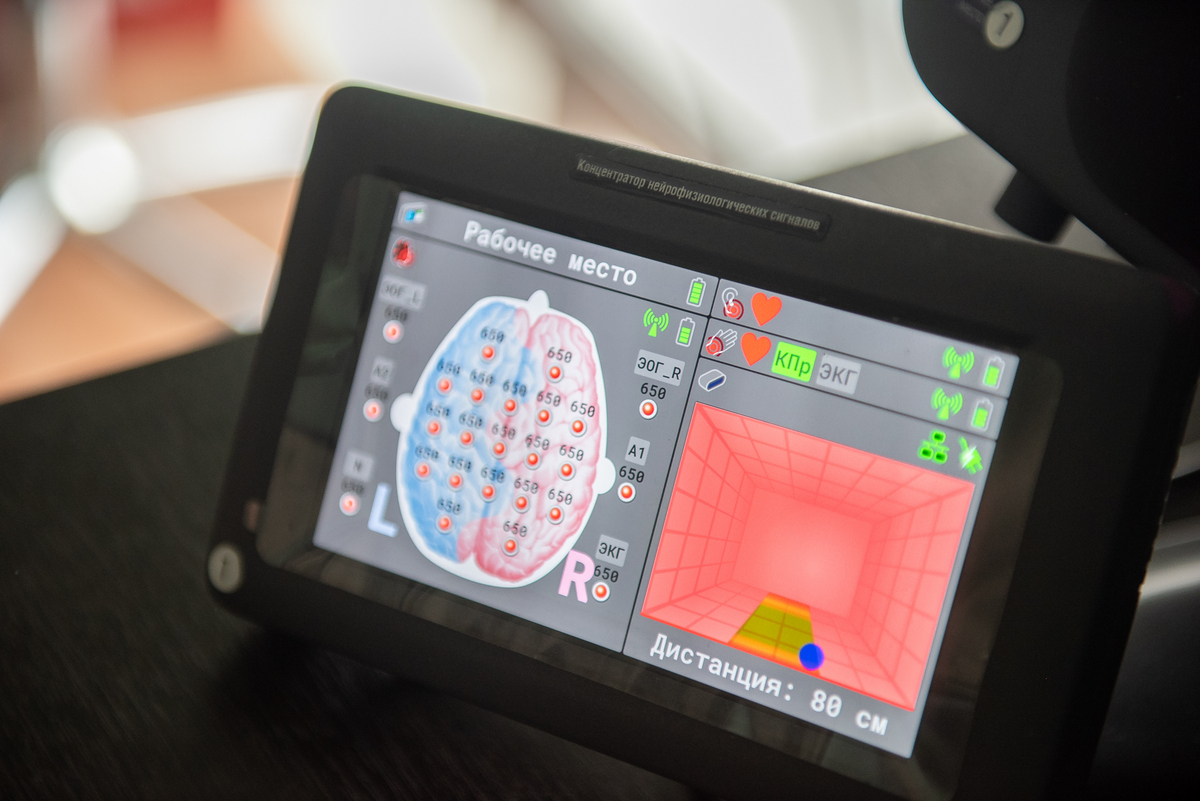Specialists in neural technology will help understand how tense working in JSC Russian Railways truly is. The company entered into a collaboration agreement with Tomsk State University and the university’s partner—the company Neurotrend—to monitor how well its staff members process the company’s documentation and when their attention gets distracted. The company will tweak the working schedules according to the accumulated data.
The Center of Cognitive Research and Neuroscience NeuroTomsk, a subdivision of TSU, is participating in a large-scale project “Development of Hardware and Software for Work Standardizing in Reliance to the Workers’ Mental Capabilities and Regulations of Document Execution at JSC Russian Railroads.” This project is implemented by the team at Neurotrend, a company that TSU partnered with.
“By using the dedicated equipment, we can analyze workers’ neurophysical performance, their emotional reactions, engagement in the work process, brain activity, and cognitive load, while they are occupied by their everyday tasks, which include interpreting flaw detector records, conducting railroad superintendence, and analyzing regulatory documents,” comments Alyona Garina, NeuroTomsk project team member and staff scientist.
Two types of experiments were conducted in the project. First, the team studied how the staff members at Russian Railroads read through regulatory documents. The contents of such documents can be perplexing, often because of wordiness and bulky syntax.
“We would make the participants of the experiment put on special equipment that tracks their cognitive load, emotional reactions, visual directions, and so on. This experiment shows how well a person processes information and when they go back to the previously read parts or flip through: This helps understand how hard the material is to comprehend. Thanks to our findings, Russian Railroads will be able to tweak their documents meant for internal use,” explains Maria Tolstova, head of TSU NeuroTomsk.

In the second experiment, staff members were doing their usual computer work—railway superintending, operation, etc. The sensors registered when the workers experienced tension, got distracted, and so on. The gathered data may potentially become an impetus for improving the working conditions at the company, which could imply longer breaks, shorter working hours, and different duty instructions. In total, it is expected that these changes will increase staff members’ work efficiency.
“Our colleagues at TSU did a great job carrying out experiments jointly with staff members of JSC Russian Railways and collecting neurophysical data in a complex environment, where work processes are continuous and uninterrupted,” shares Aleksandr Luzhin, head of the project and executive director of Neurotrend.
According to Maria Tolstova, research projects like this are important since work safety and quality of life improvement are key directions in all large companies.
“Thanks to this project we can deduce how significant the changes caused by neurotechnology can be. And in our case, particularly, the changes are for the better,” Maria Tolstova sums up.
The Center of Cognitive Research and Neuroscience NeuroTomsk was established within the strategic project “Sociohumanitarian Engineering: Research and Modelling of a Human Being and the Society” as part of the TSU development program and supported by Priority 2030, the federal program of strategic and academic leadership.